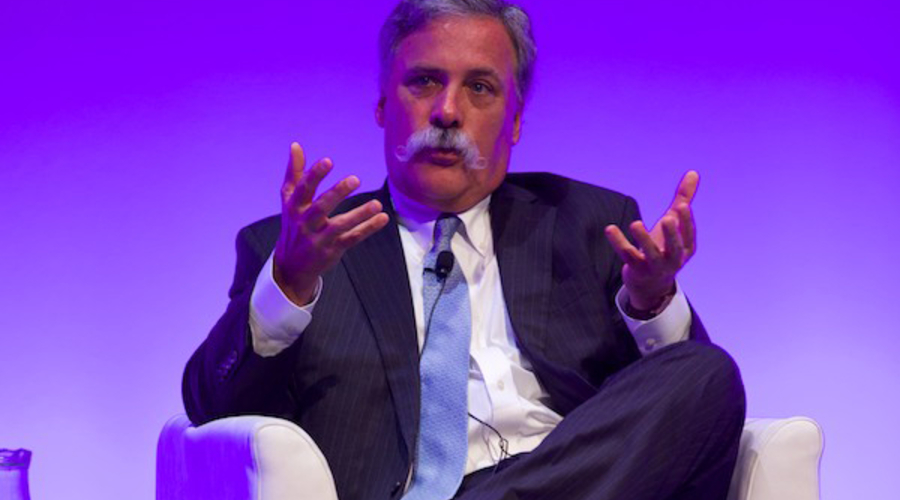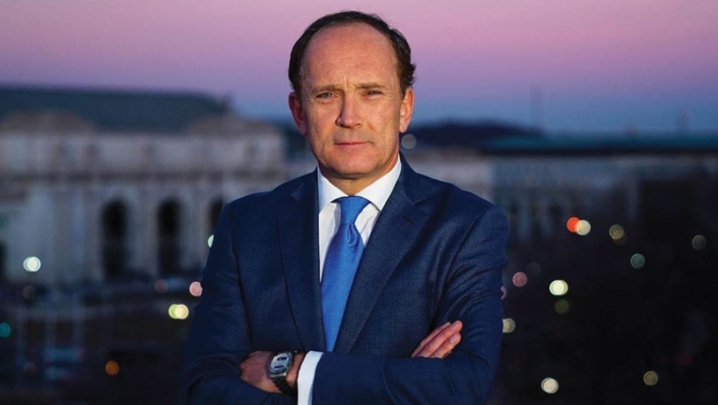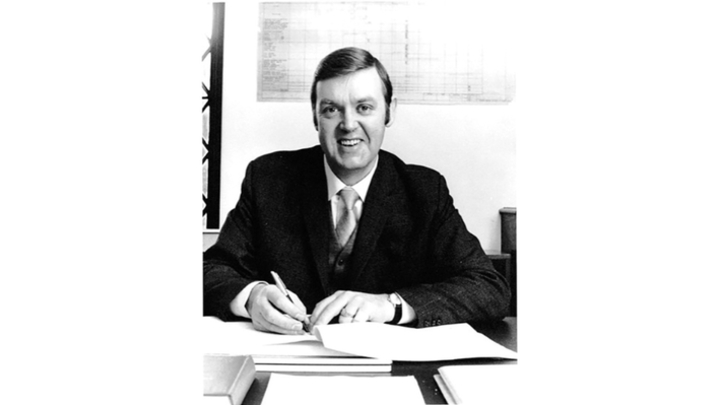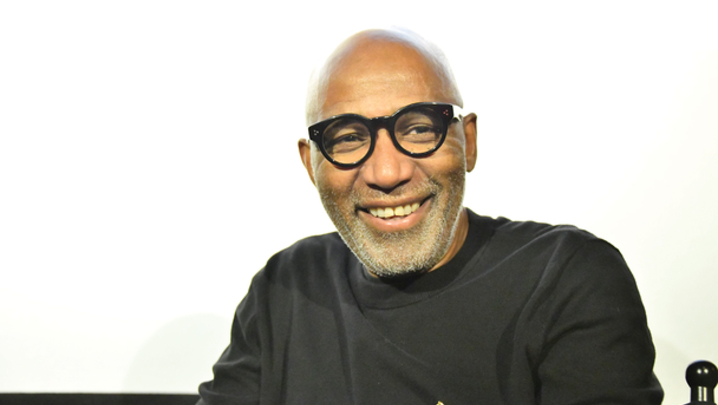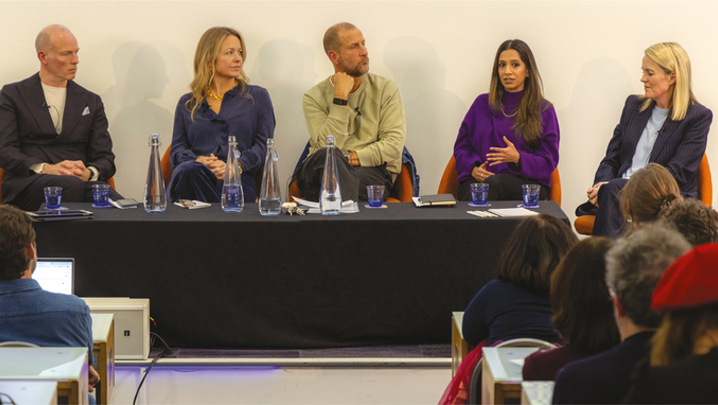For Fox President Chase Carey, unique content occupies centre stage in a tumultuous media market, hears Steve Clarke.
Chase Carey, chief lieutenant to Rupert Murdoch since 2009, devoted much of his RTS keynote to emphasising how the success of 21st Century Fox is underpinned by great content such as The Simpsons, Glee and Avatar.
In a fast-consolidating media land-scape, where the traditional entertainment giants are challenged by the likes of Netflix and Amazon, the C-word is taking on a new pre-eminence. Every entertainment company is attempting to strengthen its content portfolio.
SWe are in the content business and certainly for us it begins and ends with creative content,T observed the luxuri-antly moustached Carey, Fox’s President and Chief Operating Officer, during a session where he ruled out making a bid for ITV and confirmed that Shine’s merger with Endemol is on track.
SContent is the sweet spot,T he insisted. Just how sweet was made evident in August, when one of Carey’s responsibilities, the US cable station, FXX (formerly FX Soccer), staged a 12-day Simpsons marathon featuring all 552 episodes of the cartoon classic, plus The Simpsons Movie.
This will be followed by FXX launching the Simpsons World digital service this month: authenticated online users will have on-demand access to every Simpsons episode.
This is precisely the kind of initiative that Carey – a rare, but much-sought-after, presence at industry talking shops – suggested is helping Fox to engage with digitally distracted young audiences.
He outlined to his interviewer, RTS President Sir Peter Bazaglette, how in the US FXX had broadcast for about a year in a saturated media landscape without making much impact on viewers’ awareness. SWe used The Simpsons as a launching point to take that channel to the next level,T Carey said.
He argued that the success of The Simpsons binge Stells you two things: the power of unique high-end content… most people say it’s the best written TV show ever… and the importance of providing a unique platform.T
 This is all well and good, suggested Bazalgette, but how does the 21st Century Fox President, widely respected on Wall Street as a shrewd, cost-conscious executive, ensure that the hits keep on coming?
This is all well and good, suggested Bazalgette, but how does the 21st Century Fox President, widely respected on Wall Street as a shrewd, cost-conscious executive, ensure that the hits keep on coming?
SIt depends on great people, great management, great talent relationships and dealing with people and inviting them to fulfil their visions and pursue their passions,T said Carey. SIt’s a willingness to take risks and try new things and bet on the right people… and try and find those things that can break out in a world which has more choice.T
If this all sounded rather obvious, Bazalgette reminded the Harvard Business School-educated Carey that there must be more to running Fox than keeping Matt Groening on side.
The year to date has hardly been a quiet one for 21st Century Fox: it has pulled off a series of big deals, though not all its takeover bids have yet borne fruit.
BSkyB, controlled by Murdoch, is gaining more scale by buying Sky Deutschland and Sky Italia from Fox.
Mindful that BT will be competing for Champions League football rights, BSkyB should now be in a better position to secure key rights in future.
And then there is the story of Fox’s (so far) abortive bid to bulk up further by acquiring Time Warner.
Had this succeeded, Murdoch’s entertainment empire would now encompass the Warner film and TV studios, HBO and CNN.
With Fox so keen to own more content companies, Bazalgette wanted to know if Carey’s firm was moving away from subscription-based businesses towards more content creation.
SNot at all,T said Carey. SIn terms of Sky, I would not characterise it as selling out of Sky Deutschland and Sky Italia… We continue to be a 40% shareholder in BSkyB...
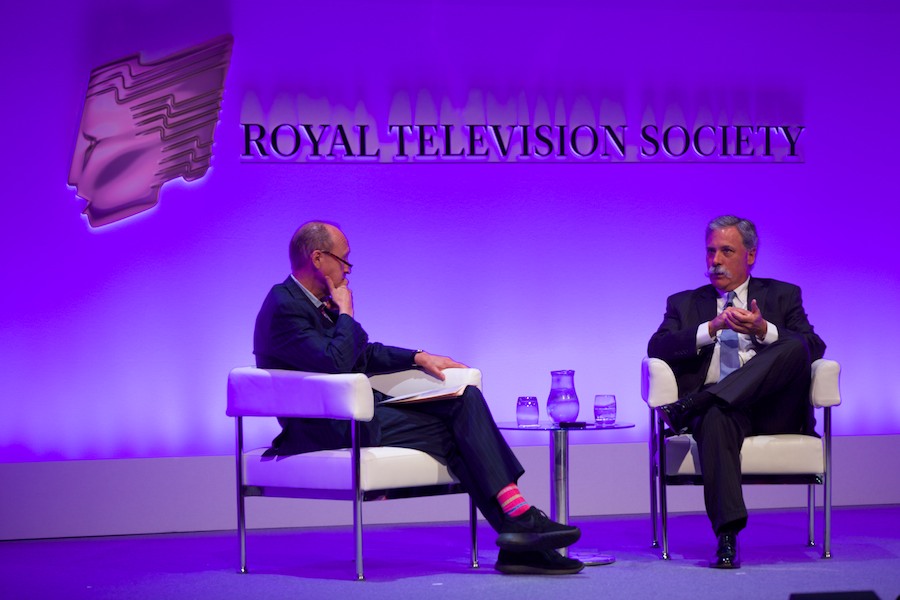 Chase Carey discusses how 21st Century Fox will stay ahead of the game (Credit: Paul Hampartsoumian)
Chase Carey discusses how 21st Century Fox will stay ahead of the game (Credit: Paul Hampartsoumian)
SWe’re not selling or in any way making a judgement on our bet on the future of Sky. We’re very excited about the future of the BSkyB franchise, with Sky Italia and Sky Deutschland as part of it.
SIn terms of Time Warner… I want to be clear we’ve moved on… The initiative behind Time Warner was certainly about content. What motivated us to take the step we took to try to acquire Time Warner was what we saw as a unique opportunity to create a company that would have a unique position of leadership in unique global content and brands.T
So, is the $25bn line of credit ear-marked for that deal burning a hole in his pocket?
SNo, we don’t have an acquisition list… Time Warner was very much a unique opportunity… a company that would uniquely fit with us.T Fox, said Carey, is focused on building existing businesses (primarily US and international channels) and investing in content.
Bazalgette changed tack and asked why Fox had invested in comics specialist BOOM! Studios and youth-friendly Vice News?
SWe are in the content business and certainly for us it begins and ends with creative contentT
SThey’re opportunistic,T he responded. SWe are a content company. We like to invest in all different types of content. Our investment in Shine a couple of years ago was an investment in an exciting part of the content world where we didn’t think we had the basis that we’d like to have – the international marketplace and the unscripted marketplace.
SWe continue to look for ways to broaden our footprint and our investment in content creation and every place to do business… in Italy, in Germany, in the UK.T
Bazalgette pointed out that in the US free-to-air networks supported by advertising (such as Fox) are facing challenges. Ad revenues are down and the average age of network viewers is hovering around 60. Might all premium content eventually be shown behind a pay wall?
Meanwhile, cable subscribers are Scord cuttingT – cancelling their subs. Are the tectonic plates shifting as younger viewers desert traditional channels for Netflix?
SI probably disagree with a number of the things you’ve said there,T Carey replied. SThere’s a lot of noise about cord cutting. What you see in the US is a mature market… but cord cutting is not really a factor yet.
SThose who will succeed are those that have unique content and brands that can stand out in a world of more and more choice.T
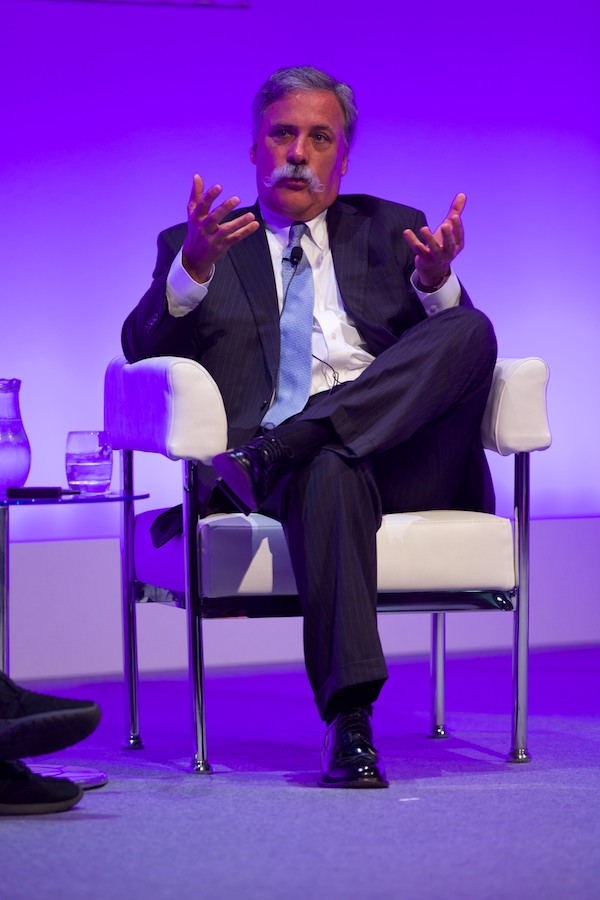 Carey: "In terms of Time Warner... I want to be clear we've moved on" (Credit: Paul Hampartsoumian)
Carey: "In terms of Time Warner... I want to be clear we've moved on" (Credit: Paul Hampartsoumian)
Carey pointed out that while Sthe vast majority of people in the UST – some 90% – pay some sort of content subscription, nonetheless, free-to-air TV would continue to be important.
The moribund US ad market is more a reflection of the economy than anything else, he added. SIn some degree there’s a need for the advertis-ing market to catch up with where viewership is moving. There is no question that you’ve got consumers who want to access and engage with content in different ways – the what-you-want, where-you-want, when-you-want-it phenomenonT
Conceding that people are watching Sless frequently on linear channelsT as more time is spent viewing catch-up services, the Fox President admitted: SWe have to figure out how to monetise that viewership better.T
Asked about re-transmission fees (an ITV-led campaign is seeking to persuade BSkyB and Virgin to pay the UK commercial public service broad-casters for carrying their channels) Carey said he was ignorant of the British situation.
However, he noted that in the US – where the fees are worth some $3.3bn a year and expected to double in the next four years – Sretransmission rights have been part of the dynamic of the US marketplace for quite a while.T
He continued: SThey allowed broadcasters like us to build a multi-channel business… a channel such as FX was really in many ways built on the back of retransmission…
SThe fees were necessary for broadcasters to be able to continue to compete effectively and invest in content against this wide array of channels that were almost reaching every household.T
As for Channel 4 CEO David Abraham’s view, articulated in his recent MacTaggart Lecture, that US ownership of big UK TV assets is undermining the traditions of British public service broadcasting, Carey begged to differ.
SEverywhere we’ve gone around the world we’ve been a force for creating more and better content… We want to invest more in the UK and provide a platform for that content to reach a broader audience.
SWe want entities such as Shine to get bigger and stronger. I am not sure why that is a negative.
SThere’s been enormous success in the UK creative industry and a lot of it has been fed by the ability of UK content to participate in a broader range of distributors…
Asked by McKinsey’s Dominic Charles from the floor what keeps him awake at night, Carey replied: SA long list of things. We are clearly in a business that is going to be transformed by digital technologies...
SContent is the sweet spot. The winners will be those who have it and the brands that stand out.T
Bazalgette had one final question – of a personal nature. What’s it like to be at the top of 21st Century Fox and not be called Murdoch?
SIt’s been a fascinating and really fabulous company to be part of for the last 25 years plus,T replied Carey, who seemed to be suppressing a grin.
SIn 1988 Fox was a two nights-a-week network. We didn’t have a news or a sports business or an international television business...
SThe Murdochs have been great partners. Rupert’s been fabulous to work with.T

